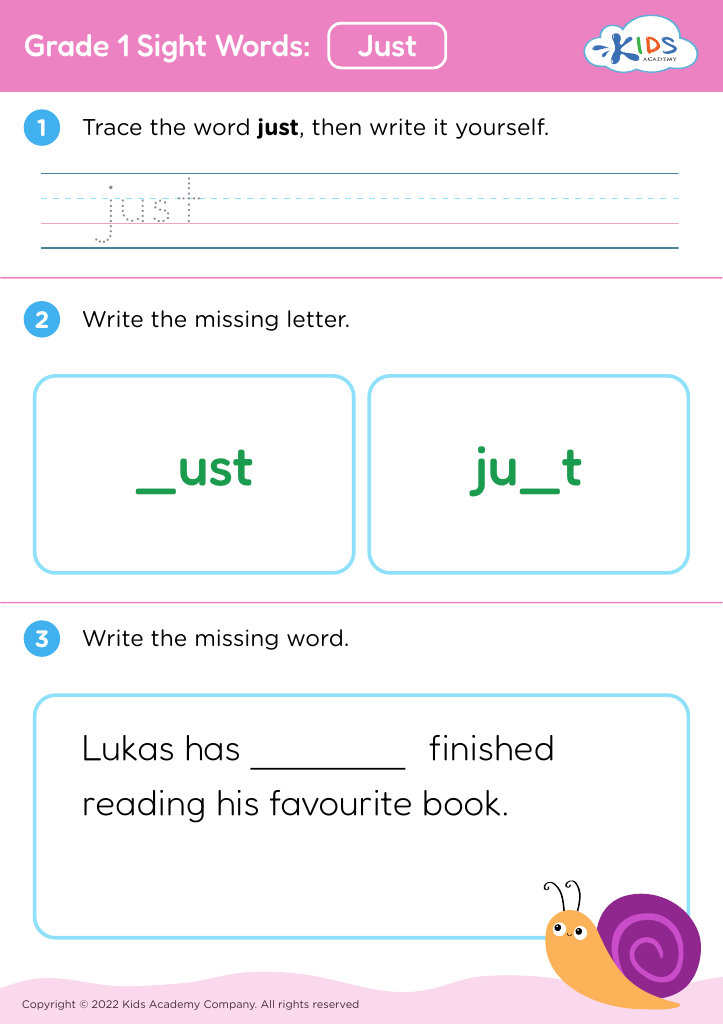Comparing quantities Worksheets for Ages 5-6
8 filtered results
-
From - To
Discover our engaging Comparing Quantities Worksheets tailored for children aged 5-6! These interactive resources help young learners develop essential mathematical skills by exploring the concepts of more, less, and equal. Through fun exercises and colorful illustrations, children will confidently compare different quantities, enhancing their numerical understanding and critical thinking abilities. Perfect for classroom or home use, our worksheets cater to various learning styles, ensuring all children can thrive. Foster a love for math in your little ones and make learning enjoyable with our thoughtfully designed comparing quantities worksheets today! Start their educational journey with Kids Academy!
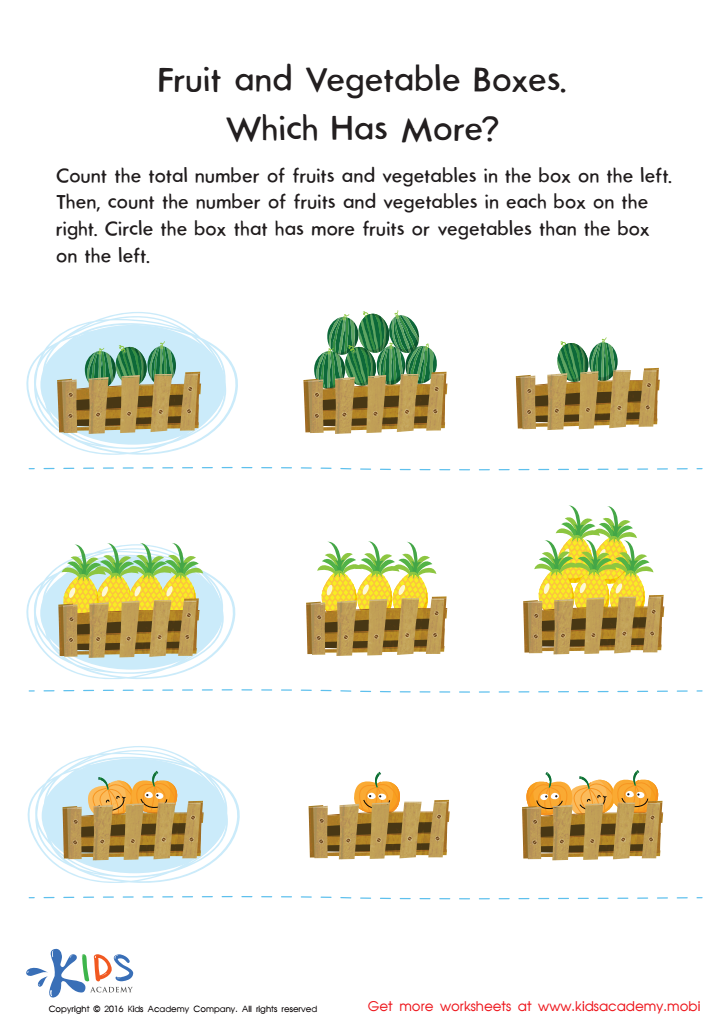

Which Has More? Size Worksheet
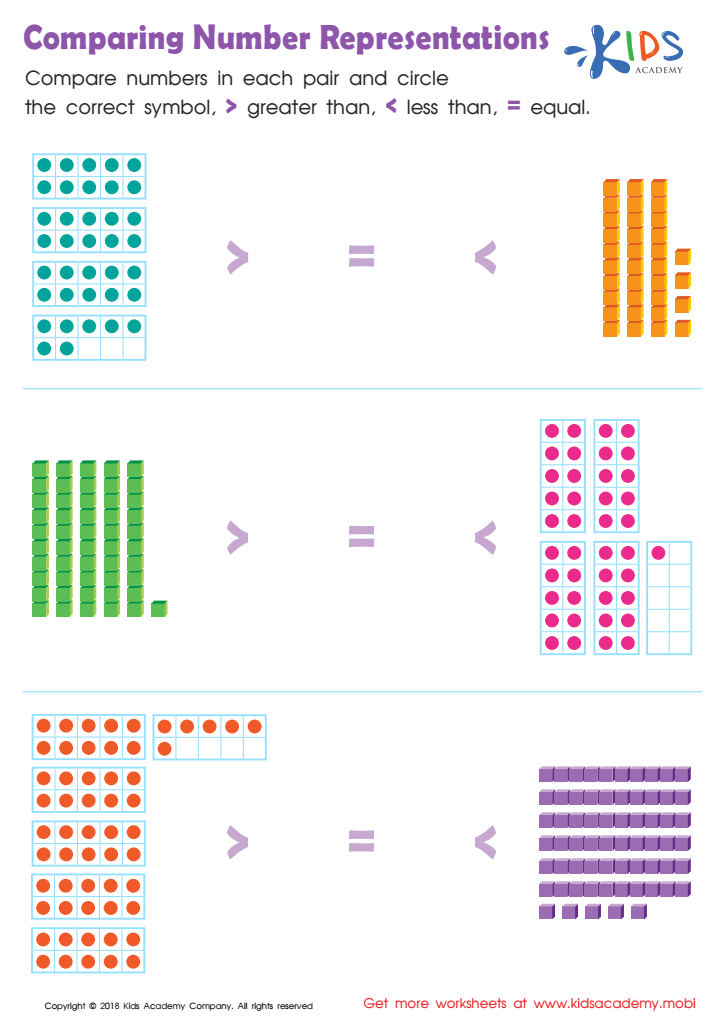

Comparing Number Representations Worksheet
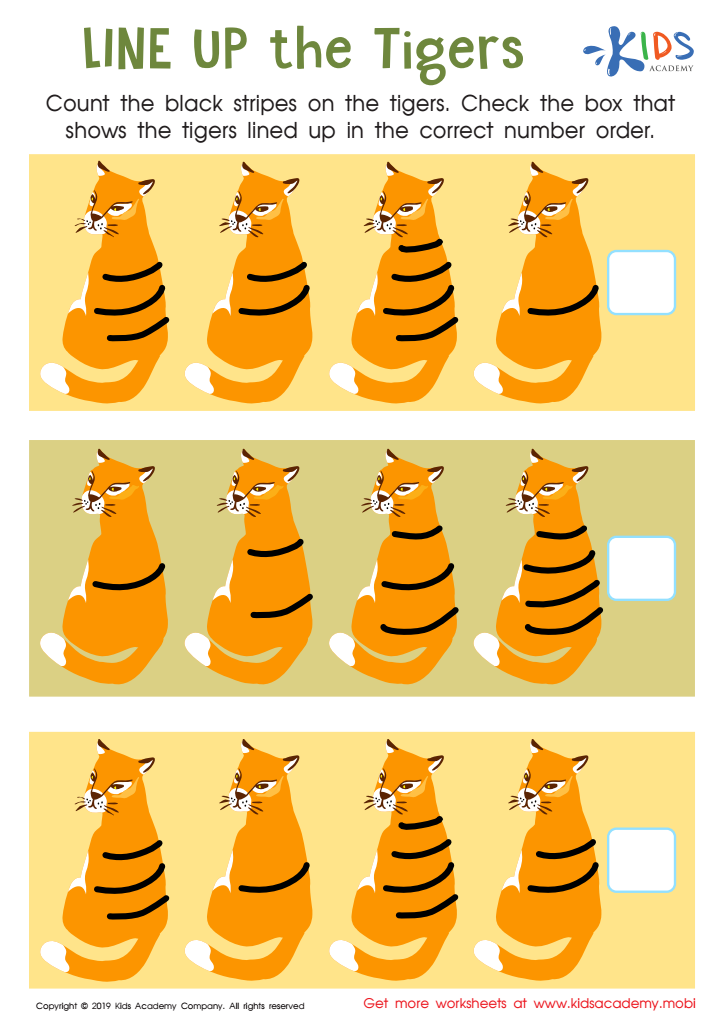

Line up the Tigers Worksheet
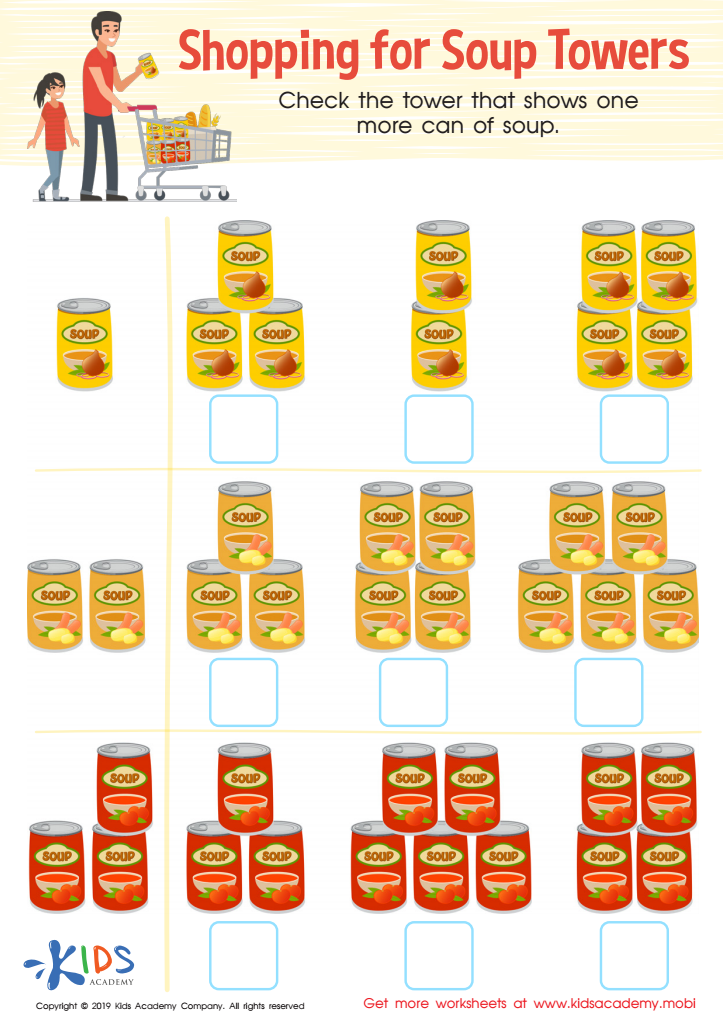

Soup Towers Worksheet
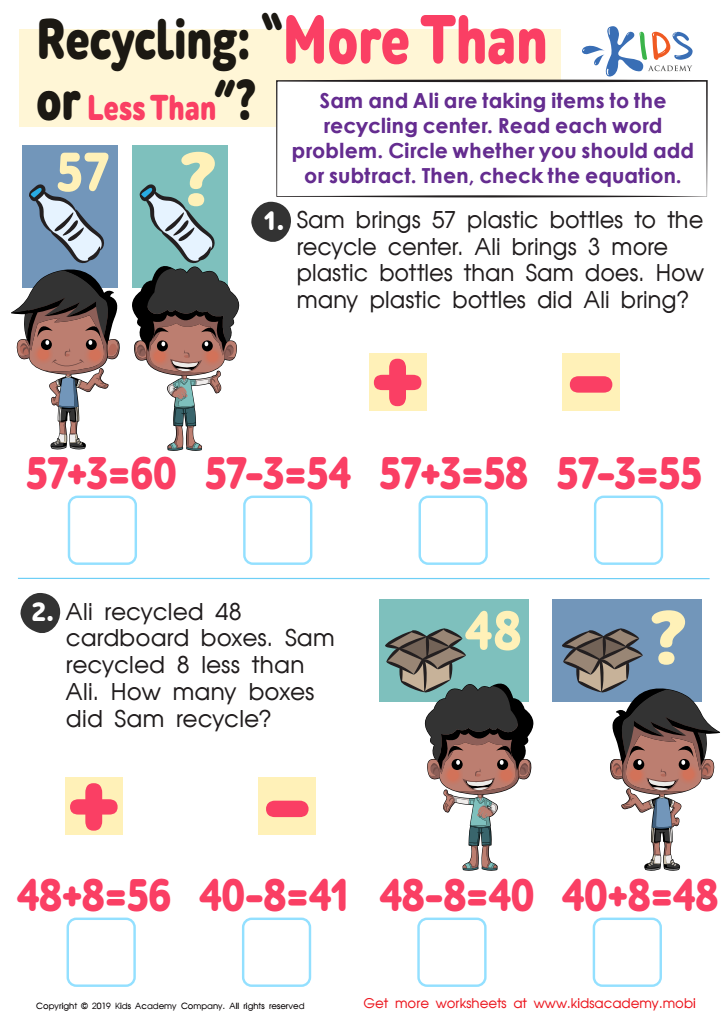

Recycling - More or Less Worksheet
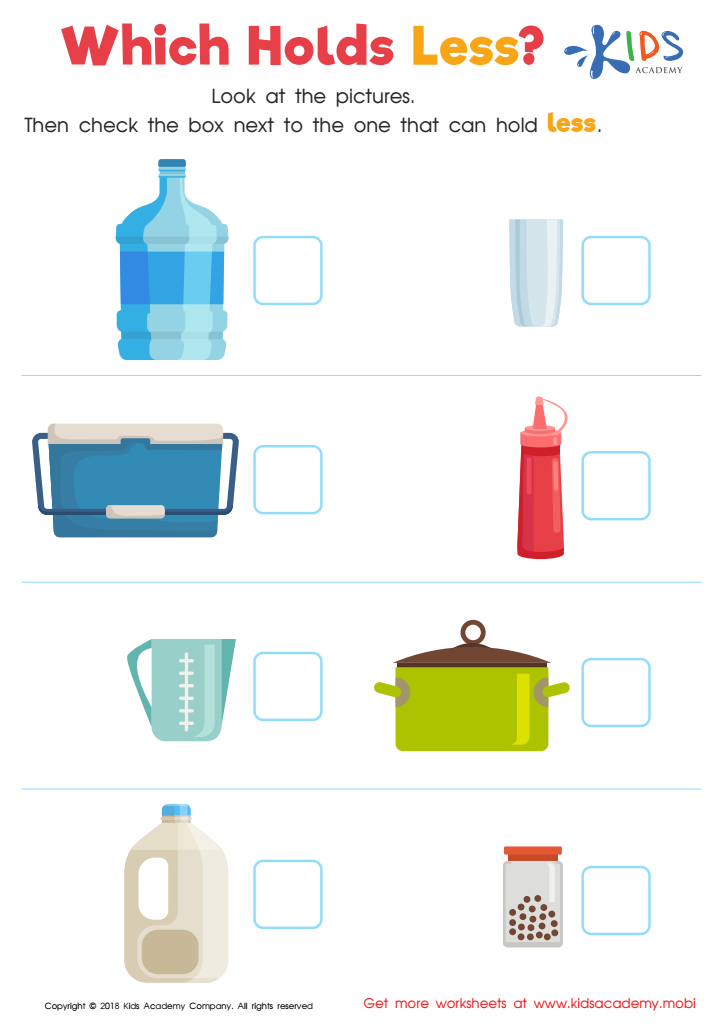

Which Holds Less? Worksheet
Comparing quantities is a foundational skill that plays a crucial role in a child's cognitive and mathematical development, particularly for ages 5-6. At this stage, children begin to develop their understanding of numbers and relationships between them, which is essential for more complex math concepts later on.
Parents and teachers should care about comparing quantities because it nurtures critical thinking and problem-solving skills. By encouraging children to understand "more than," "less than," and "equal to," adults help build a strong number sense. This enhances their ability to tackle everyday situations, such as sharing snacks or distributing toys, fostering social skills and cooperation.
Additionally, comparing quantities lays the groundwork for measuring, counting, and recognizing patterns. It encourages curiosity and exploration, traits that are vital for lifelong learning. Engaging children in hands-on activities—like sorting objects by size or quantity—supports their engagement and retention of mathematical concepts.
Furthermore, fostering a love for math at an early age can change a child's outlook on the subject, making them more confident in their abilities. Overall, promoting the skill of comparing quantities empowers young learners with essential tools for academic success and everyday life.
 Assign to My Students
Assign to My Students


